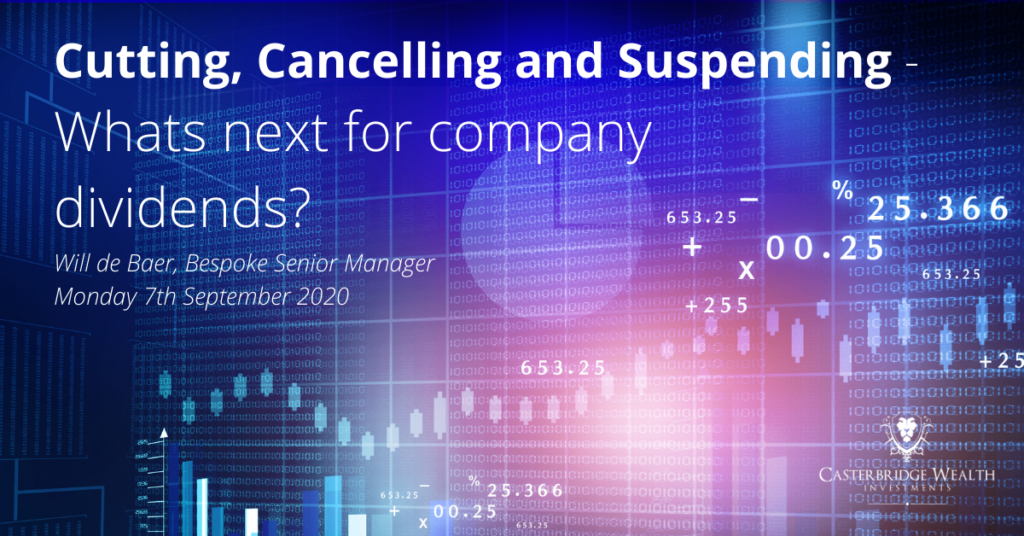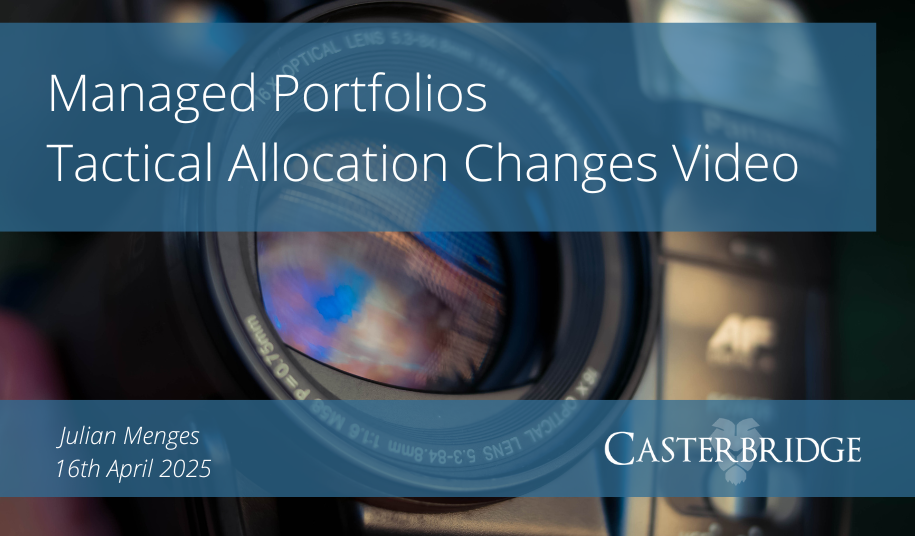What has been happening…
Portfolio income is an important component of investing for both those investors with income requirements and those relying on compounding total returns.
Since the start of the Covid-19 crisis in March, companies have been cutting, cancelling, or suspending their dividends. Whilst painful for investors, these decisions have been the right course of action, ensuring companies can maintain their business models through the current economic malaise and uncertainty regarding the speed of the recovery. Company cash has helped maintain balance sheet integrity, been used to pay debt interest payments, fixed costs have been met and key staff have been maintained, amongst other uses; ultimately these companies have not failed, which is in the interest of all investors.
How the situation looks today…
The loss of dividend streams has come from a broad set of companies and sectors. Full cancellations have been focused on those companies in sectors most affected by the virus including, leisure, retail, banking and housebuilders to name a few. Those companies that have cut their dividends have been within the energy, mining and consumer related sectors including beverage and tobacco companies. Prior to the crisis as of 31 December 2020, the FTSE 100 dividend yield was roughly 4.5%. Today, following the cuts and suspensions, the annualised dividend yield remains in the region of 4.5% although on the FTSE 100 level close to 5,800 instead of the 7,500 level at the end of 2019.
How Casterbridge portfolios have been affected…
We believe that these are temporary measures, but they will likely last until well after the virus has been beaten and the global economy returns to a semblance of normality; enabling time for these companies to return to profitable trading. Whilst investment portfolios managed by us have not been immune from the equity dividend cuts or cancellations, we continue to hold direct equities that have quality business models and at the time of writing around half in number, of the UK direct equity exposures have maintained their dividend payments. Roughly a third of the direct UK equities held in portfolios have had their dividends cancelled and the rest have seen cuts.
How Casterbridge are managing the situation…
Through diversification, portfolio income streams are provided through all the major asset classes. Whilst equity dividends have in recent history provided the lion share of the income, investors continue to benefit from the Gilt and corporate bond income streams, and we have recently added a new Emerging Market debt fund, with a yield close to 5%. Other areas that have income streams are within alternatives, including: the US healthcare property exposure with a 4.5% yield, the infrastructure exposure with a 4% yield and the private equity exposure with a 1.1% yield. A typical balanced income portfolio will today have an estimated yield of 2.49%, a reduction of 75bps from the July 2019 estimated yield of 3.24% on the same portfolio structure. Please note that these yields are based on the previous twelve-month figures, meaning that they will likely further reduce as we move through 2020.
In conclusion…
We believe that the income reduction is manageable over the short to medium term and can be picked up over this period through capital appreciation. We expect the virus to eventually be defeated and for the global economy to return to growth over the medium to long term. Under such circumstance’s dividends should begin their gradual journey back to previous levels. Therefore, we are comfortable with the dividend reductions at this time; preferring these companies to stay in business, and whilst there may well be further announced reductions or cancellations, these will be managed in a similar way over the short to medium term.
Important Information
This update is for information only and does not constitute advice or a recommendation and you should not make any investment decisions on the basis of it. The views and opinions within this document are those of Casterbridge Wealth at time of writing and may change without notice. They should not be viewed as indicating any guarantee of return from an investment managed by Casterbridge Wealth nor as advice of any nature. Past performance is not a guide to the future. The value of an investment and any income from it may go down as well as up and the investor may not get back the original amount invested.





